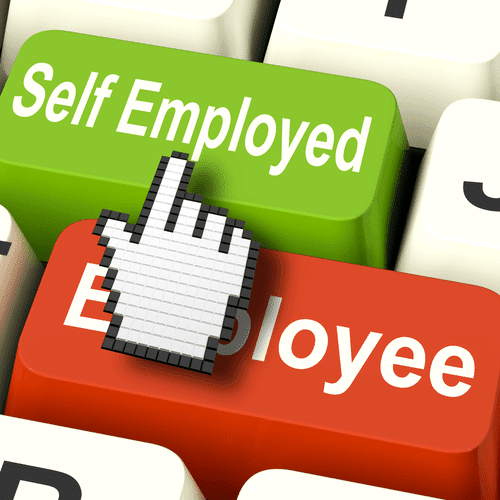Accounting vs Payroll vs Bookkeeping Insights to Master Financial Management
- Posted by Admin Surya Wijaya Triindo
- On June 8, 2021
- 0

The CPA prepares the returns, and if they haven’t entered any adjustments throughout the year, they’ll enter them at this time. They’ll also determine bookkeeping and payroll services the estimated payments the client needs to pay throughout the upcoming year, and make any other recommendations for tax planning. Bookkeepers work with the accountant/tax preparer to make sure they have all of the documentation they need from the client’s business to prepare the annual returns. At the end of the month, bookkeepers get the bank/credit card statements from the client and reconcile each account, then close the period so nothing can be edited or deleted.

How Intuit helps tax and bookkeeping pros do their best work
And until all those taxes are deposited to their final destinations, they’re payroll liabilities. Payroll liabilities, or payables , are amounts you currently owe, pertaining to your business’s payroll. If you’re using a payroll journal, you enter payables as credits because you are increasing the amount you owe. Examples of payroll liabilities include employee wages or compensation and payroll taxes. A bookkeeper records the day-to-day financial transactions of a business. One key aspect of implementing effective financial strategies is establishing clear financial goals and objectives for your business.

Should I use software for my payroll?
Because it is just one aspect of an accounting process, payroll accountants often report to the head of their payroll department. Information from the payroll department will go to the company’s overall financial officers. From there, a complete picture of a company’s expenses and earnings can help locate apparent problems of identifying high-performance areas. The process includes tracking time, accounting for bonus pay, and making on-time distributions. Smaller businesses might utilize accountants in bookkeeper roles, handling all financial data.
Implementing Effective Financial Strategies: Driving Success
- Accounting, on the other hand, utilizes data from bookkeepers and is much more subjective.
- The bookkeeper may use a cash flow software like Bill.com to manage all of a businesses vendor bills.
- Although a bookkeeper may complete some payroll functions, the two roles are different.
- Bookkeepers can benefit your business by freeing up more time in your schedule, minimizing financial errors, and generating accurate financial reports.
- Now that you’ve set up the basics of payroll accounting, it’s time to complete all the essential paperwork for onboarding.
- Much like other accounting forms, payroll accounting follows the complete accounting process.
- They use this data to prepare financial statements, such as income statements, balance sheets, and cash flow statements.
Setting clear financial goals, creating detailed budgets, and implementing robust expense tracking systems are essential steps for optimizing resource allocation and maximizing profitability. By leveraging technology-driven solutions such as accounting software and payroll systems, businesses can streamline financial processes, minimize errors, and enhance productivity. Now that we have a comprehensive understanding of accounting, payroll, and bookkeeping, the next step is to determine the most suitable financial management approach for your business. While each component plays a crucial role in managing finances, the optimal strategy will depend on various factors, including the size of your business, industry regulations, and your specific financial goals. In this section, we’ll explore how to choose the right financial management approach by tailoring strategies that align with your business needs.

If you’re like most modern business owners, odds are you didn’t become one so that you could practice professional-level bookkeeping. Outsourcing the work to a seasoned bookkeeper can allow you to focus on your business plan and growth. Not only can this help you set goals, but it can also help you identify problems in your business.
Roles of an Accountant
Instead https://www.bookstime.com/ of time-consuming manual payroll processes, some organizations opt for payroll software. Modern payroll services provide companies and employees with a cloud-based portal where they can set up and view their benefits and salaries. As discussed above, the main objectives of accounting and bookkeeping are similar but still different in many ways. Both disciplines work hand in hand to determine the financial health of a business. Since most people consider bookkeeping and accounting to be interchangeable, there is often a lot of misconception about what each professional can provide. Here are a few key differences between what bookkeepers do vs. what accountants do.

If you find that you have a talent for and enjoy the process, you may consider starting your own bookkeeping business providing this service to others. There’s always a demand for experienced, efficient bookkeepers in nearly every industry. Companies often outsource the organization of their finances to independent professionals, then hire accountants for more complex issues and tax filing. Bookkeeping tasks provide the records necessary to understand a business’s finances as well as recognize any monetary issues that may need to be addressed. Proper planning and scheduling is key since staying on top of records on a weekly or monthly basis will provide a clear net sales overview of an organization’s financial health. While the bookkeeper can compile and gather information, the balance sheet and detailed financial statements are produced by those with more experience and education.

- Despite the convenience of bookkeeping software, businesses still face challenges when it comes to streamlining bookkeeping processes.
- The following four bookkeeping practices can help you stay on top of your business finances.
- Our editorial team independently evaluates products based on thousands of hours of research.
- As professionals, we know that small mistakes can lead to big problems if they are not caught, and so with each line, we will review it several times for accuracy.
A bookkeeper keeps track of day-to-day business finances, like recording transactions and managing general ledgers. Good bookkeepers are organised, skilled with numbers, and natural problem-solvers. Bookkeeping is the process of recording all financial transactions a business makes from its opening to closing. This practice helps establish the company’s financial outcomes and allows owners to track where their money is going. When choosing accounting software, consider your budget and business accounting needs. Many accounting programs have free versions that cover the basics, such as tracking income or generating financial reports.
For a firm to be successful, it is essential to have a strong financial foundation. Payroll, bookkeeping and accounting fundamentals serve as the cornerstones for thriving company communities. It’s important to understand the differences between payroll and bookkeeping (and their relationship) and how accounting can improve your financial portfolio. Although software has streamlined several aspects of the process, accounting, payroll, and bookkeeping processes are not fully automated at present.



0 comments on Accounting vs Payroll vs Bookkeeping Insights to Master Financial Management